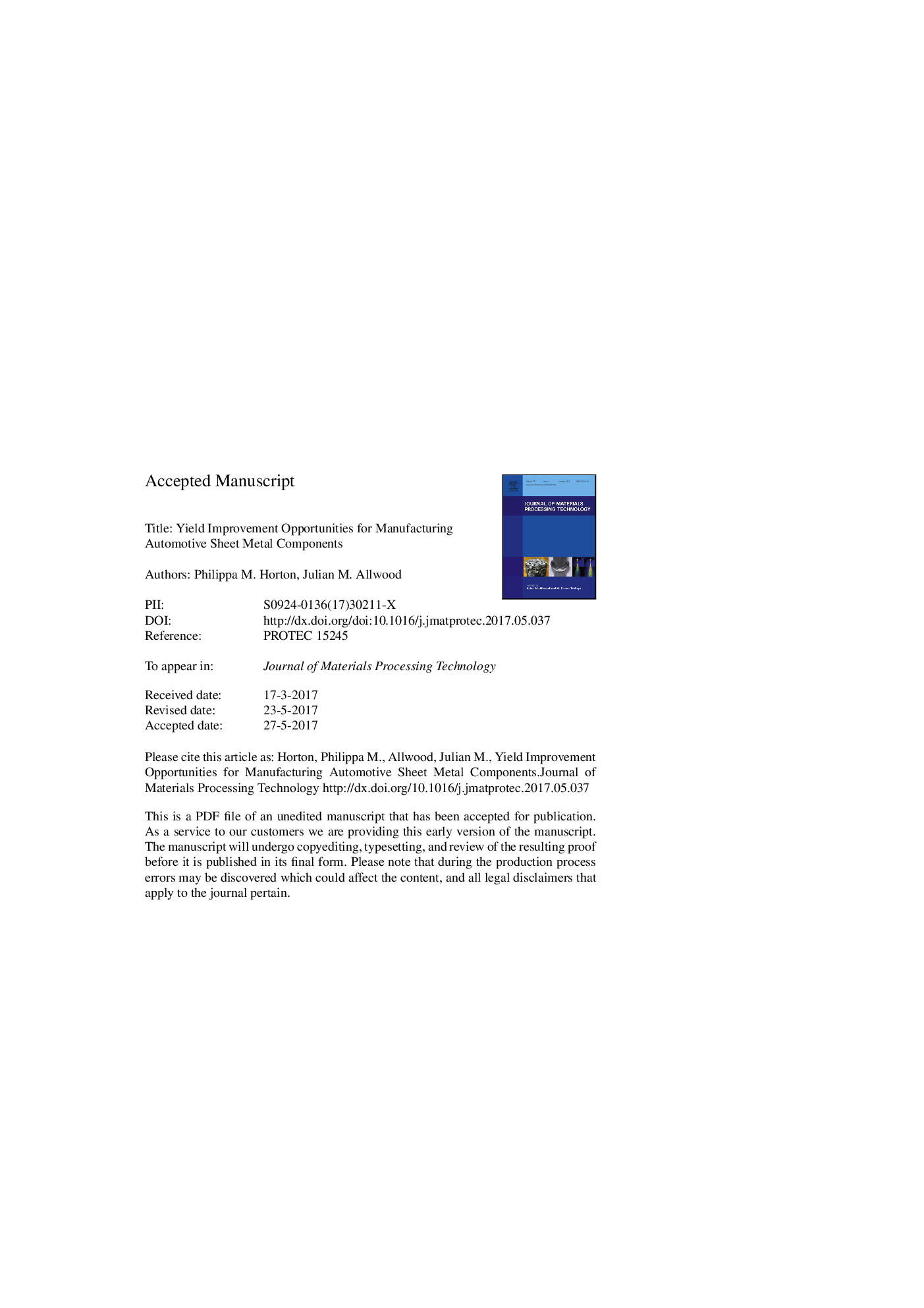| کد مقاله | کد نشریه | سال انتشار | مقاله انگلیسی | نسخه تمام متن |
|---|---|---|---|---|
| 5017710 | 1466718 | 2017 | 29 صفحه PDF | دانلود رایگان |
عنوان انگلیسی مقاله ISI
Yield improvement opportunities for manufacturing automotive sheet metal components
ترجمه فارسی عنوان
فرصت های بهبود تولید برای تولید قطعات فلزی خودرو
دانلود مقاله + سفارش ترجمه
دانلود مقاله ISI انگلیسی
رایگان برای ایرانیان
کلمات کلیدی
موضوعات مرتبط
مهندسی و علوم پایه
سایر رشته های مهندسی
مهندسی صنعتی و تولید
چکیده انگلیسی
Reducing sheet metal yield losses in automotive manufacturing would reduce material demand, providing both environmental and financial benefits. Current literature is unclear on how yield losses can be reduced since there is limited knowledge of how much scrap is generated, the cost of scrap and why yield losses occur. Through an industry study, this paper estimates that yield losses account for 44% of sheet metal used in the production of passenger vehicles. Improving production material efficiency to 70% would reduce the embodied emissions and material costs of the sheet metal car structure by 26% and 24% respectively. This could provide a global annual saving opportunity of 25 million tonnes of CO2, and £8 billion. Evaluation of a case study vehicle reveals that yield losses occur when a blank is simplified to a regular shape, or increased in size due to the design of the part, blank holder and addendum surfaces. A study of business processes identifies that yield losses are increased to meet part design and manufacturing requirements. Results from the industry, vehicle and business process investigations are analysed to propose and evaluate nine strategies for sheet metal scrap reduction. Suggestions are made to enable immediate and long term implementation of yield improvement strategies.
ناشر
Database: Elsevier - ScienceDirect (ساینس دایرکت)
Journal: Journal of Materials Processing Technology - Volume 249, November 2017, Pages 78-88
Journal: Journal of Materials Processing Technology - Volume 249, November 2017, Pages 78-88
نویسندگان
Philippa M. Horton, Julian M. Allwood,
